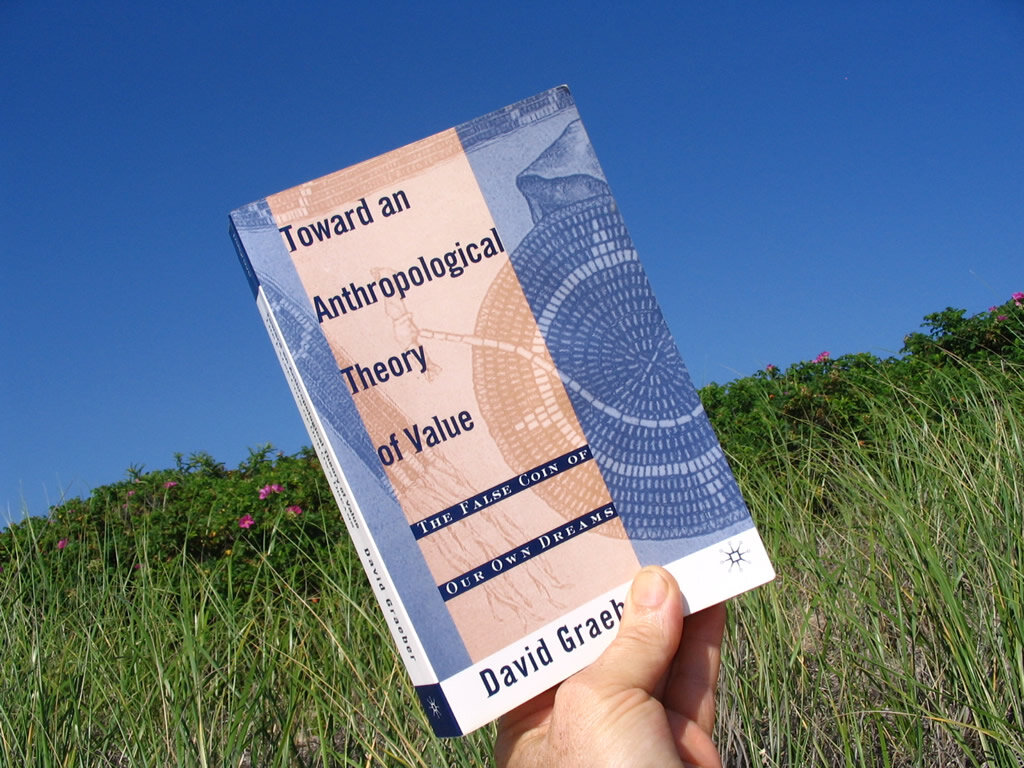Reading Between

Reading Between
Reading Between began with an invitation – to join me in reading David Graeber’s book Towards an Anthropologicial Theory of Value. In the late months of 2005 and early 2006, I offered to send anyone a free copy of Graeber’s book, creating an informal network of readers who communicated online through email and a forum. Reading Between was partly a fragmentary conversation, and partly a simultaneous action (reading, or thinking about reading) distributed across space in several countries.
More on David Graeber and Reading Between in the essay Uselessness, Refusal, Art, and Money.






A Question for the Curator
from "Les Formes du dèlai: Questions/Answers" in Les Formes du Dèlai (catalog), Edited by Marie Cozette, Keren Detton, Julie Pellegrin Published by La Box art school, Bourges, 2007, Les Presses du Réel, Dijon.
Participating artists were asked to interview the curators.
Sal Randolph: When is an artwork not an artwork? This project has challenged my ideas about the boundaries of art and non-art, process and product, and I'd like to hear more of your thoughts about how you feel this relates to contemporary social artworks and other forms of non-object art. I am particularly thinking of Allan Kaprow's essays about the non-artist in his book Essays on the Blurring of Art and Life. One of the participants of Reading Between offered this quote of Kaprow's for our contemplation: "Once, the task of the artist was to make good art; now it is to avoid making art of any kind." What is your feeling about the task of the artist — should it be process or product?
Julie Pellegrin: The definition of art hinges on a cultural construct or, as you yourself have put it, a fiction with no intrinsic value. We might well wonder these days if the art/non-art distinction doesn't mainly benefit a profit-oriented system with a vested interest in keeping art a separate cultural category so as to justify its market value. Because the works in Les Formes du Dèlai don't try to assert their character as art, most of them are unsaleable and even, as has been suggested, unshowable. What interests us, then, is what this indeterminacy can entail in the gallery situation and also in the social arena. A number of you have opted for spaces in which the artwork is no longer identified as such; the Internet, a classroom, a natural history museum and, very often, the street: from Daniel Buren, one of the first to take the risk of having his work merge with the urban landscape, to Wolf von Kries, who likes to work outdoors because the passers-by aren't going to wonder if it's art. Art out of context becomes something else: an unusual event that is more incisively challenging because you're not ready for it. It introduces a change into the setting, an "accident" that allows us to reassess both our environment and our behavior. According to the philosopher Jacques Rancière, "Art is art in so far as it is also non-art." This indeterminateness of the art object means art can cover a very broad field of thought and action; currently many people — sociologists, philosophers, engineers, and anthropologists like yourself — are no longer at home in their own disciplines and are taking refuge in art. Art is becoming a domain of experimentation for non-artists, which also means for the viewer. The Formes du Dèlai artists are creating situations intended to promote the experience at the expense of the object, collective creation of meaning rather than an individual imprint. The roles of producer and consumer are becoming fundamentally and reciprocally porous, with the art experience being redefined by a set of practices and uses: I really love it when you suggest not just settling for looking at a Dan Flavin in a museum, but actually remaking it at home. Artists develop ways of making that we can then adapt or extend. Your works have really broadened our view of art, which I now tend to consider as a basic human activity rather than an exclusive club."
Reading Between was part of the exhibition Les Formes Du Dèlai, curated by Marie Cozette, Keren Detton and Julie Pellegrin at La Box::Bourges, ENSA Bourges, France.
Catalog from Les Presses du Réel.
A PDF excerpt from the catalog can be downloaded here: